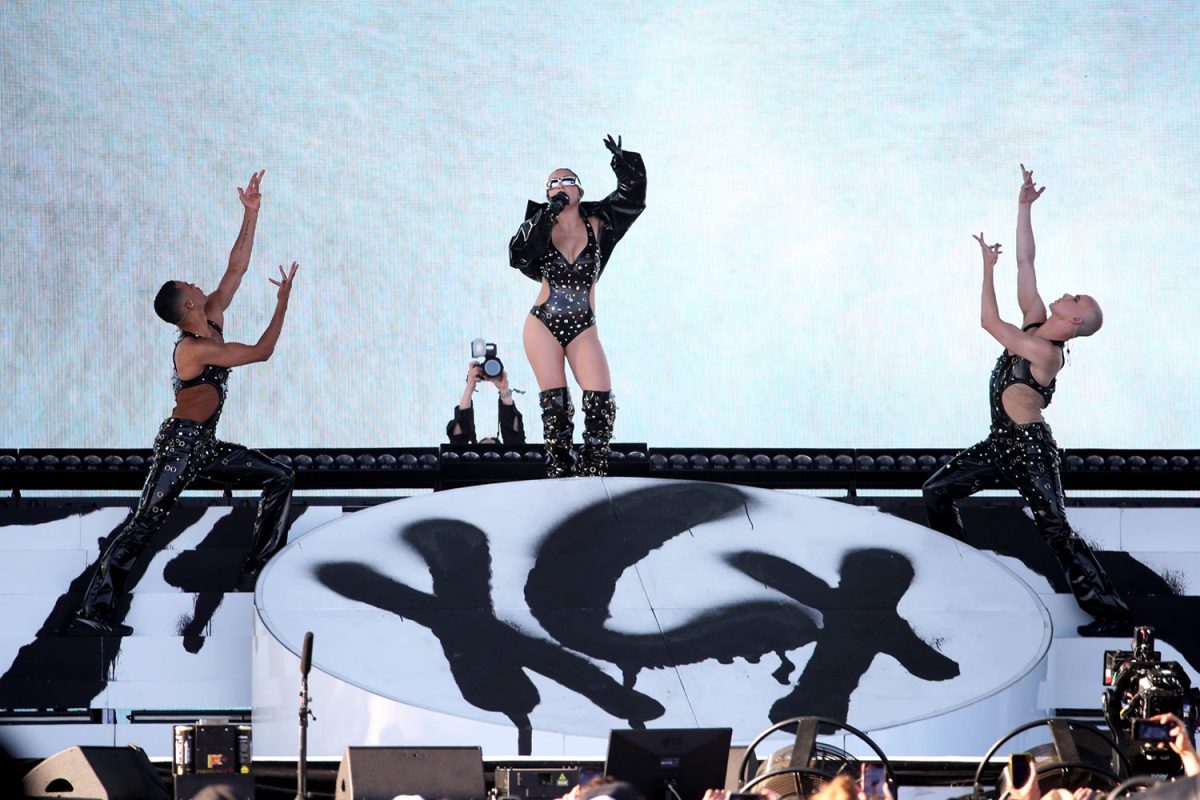The first version of “BRAT” introduced a new era of green and club music, paving the way as the top dance/electronic album on Billboard shortly after its debut. Released on Oct. 11, Charli XCX’s new remix album, “Brat and It’s Completely Different but Also Still Brat,” has surprisingly abandoned many of the original song’s trademarks that made the original such a huge hit.
The new release is a compilation of 19 artists, ranging from Ariana Grande and Bon Iver to Julian Casablancas and Bladee. Unfortunately, their features sound just as random as their names may look next to each other.
Attempting to unite folk, pop, R&B, and hyperpop singers under the wing of the electronic genre is a tenacious affair. After giving “Apple” featuring The Japanese House a good three listens, though, I fear something is amiss.
The remake or remix should add to the iconic aspects when you already have such a successful single. With nearly 2 million videos on TikTok and 199 million and counting streams on Spotify, the lines “I think the apple’s rotten right to the core” have been ringing in thousands of listeners’ ears since the TikTok dance by user Kelley Heyer went viral.
I was incredibly disappointed to find this line completely omitted from the remix with The Japanese House. And while that, as an artistic choice, is completely fine, removing the most successful part of the song creates the expectation that it will be replaced by something that outshines it.
This additional aspect is entirely absent from “Apple.” I found it rather bland and static, unlike Charli’s discography.
The English singer-songwriter’s work has always been different, a pioneer of creativity and unorthodox beats in electronic music. Even the original recording of “Apple” beautifully stood out among the other songs on the first album. Its poetic lyrics were disparate from the dialogue-centered, conversational structure of “Girl, so confusing” or “Guess.”
RELATED: Review | ‘Industry’ season three goes down as one of HBO’s finest releases
Maintaining a mellow sound, it captured the experience of the original album: dynamic girlhood that is not always makeup, drinks, hot selfies, gossip, and boys, but is, more often than not, raw, emotional connections with others and despair for identities that get lost in societal expectations.
The Japanese House is no stranger to producing bedroom pop pieces that emulate this, as is seen in her hits “Touching Yourself” and “Saw You in a Dream.” Therefore, the feature is not where this remix went astray.
It was a passive, boring listen. Nothing quite stood out to me after stepping away from the song. There are no peaks and valleys that you would expect to hear in an electronic album. If anything, I’m left appreciating the former version for capturing melancholy without killing the atmosphere of the greater whole it’s a part of.
My experience with “Guess” featuring Billie Eilish, on the other hand, made the composition of the former pieces even more appalling. This remix with the nine-time Grammy nominee proves that Charli XCX knows what she’s doing.
A raunchy call-and-response piece, “Guess” maximizes its feature artist’s potential. There is an erotic chemistry between the two girls, teetering on the verge of friendship and sexual pining. That thin line of tension between girlhood and girlfriends is exactly what “BRAT” is about.
The original lyrics are repurposed, not lost, by Eilish’s clever and flirtatious wordplay. These two have always produced bold music, but nothing screams scandalous like the line “Charli likes boys, but she knows I’d hit it.”
Whereas “Mean girls” featuring Julian Casablancas is unpleasantly off-putting, Eilish and Charli’s song is off-putting in a shocking, risque way.
Not every artist can venture out of their comfort zone, and sometimes, transgression isn’t necessary.
Experimental music can combine artists and their respective genres without forcing them to dip their feet into something they have never tried. Instead of acknowledging this, it seems as though Charli XCX indoctrinated all these feature artists into her genre.
Whether or not “Brat and It’s Completely Different but Also Still Brat” is a successful product is subjective to the artist’s contentedness and the public’s opinion. However, it’s becoming clear that the music industry is becoming a means to network instead of devoting itself entirely to mastering and refining experimental art.



